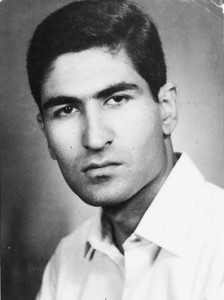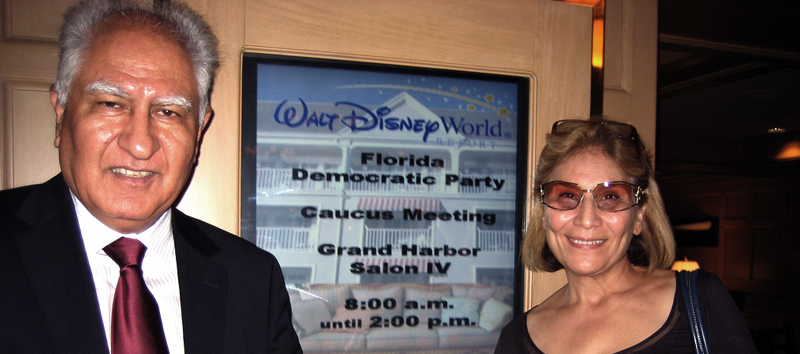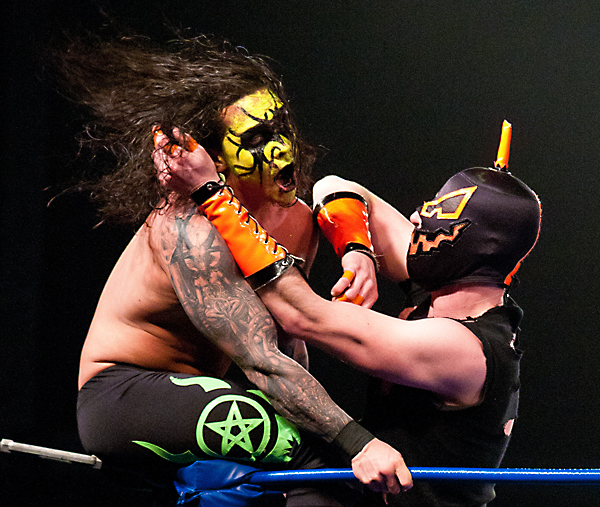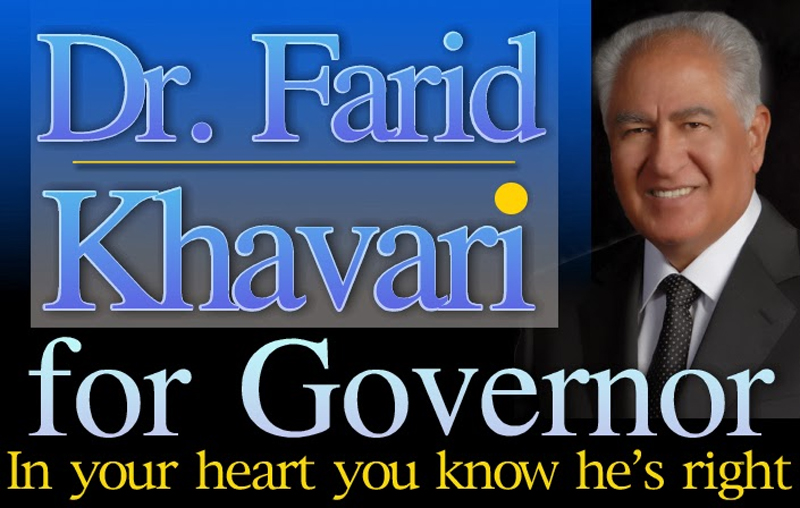“not social cost … social profit!”
While the public is bombarded with the TV wrestling spectacle of Rick Scott vs. Charlie Crist for Florida governor, independent Farid Khavari is quietly making his way around the state. Khavari offers not rhetoric but solutions, centered on his plan for Florida to create a SuperBank which would reinvigorate the state’s economy through creating a “Zero Cost economy” to provide debt relief to millions through refinancing home mortgages and student loans, while generating a profit the state could use to serve needs such as expanded healthcare and education. His plan would foster a truly Green economy through “Environomics: The economics of environmentally safe prosperity.”
Khavari was born in Iran in 1943. As a youth under Shah Reza Pahlavi, he was among the first to join the Iran Education Corps, teaching reading, writing, and arithmetic to children and adults in a village in northern Iran from 1962 to 1964. He has lived for extended periods in India and Germany, and received a Master’s Degree in Economics from the University of Hamburg, Germany (Khavari: “ultra-conservative in economics”), in 1973, and a Doctorate in Economics, from the University of Bremen (“totally red”) in 1976, moving to the United States in 1977. In 1978, Khavari entered the solar energy industry and formed General Solar Technology, Inc. in Miami, working in research and development, and in the manufacturing, distribution and installation of solar energy systems.
Influences in his life span the ideological spectrum, from Mahatma Gandhi, whom he met as a child, to Ronald Reagan (“for his limitless confidence “), to Martin Luther King (“America’s Gandhi”), and Malcolm X (“who provided true guidance to deprived people”).
His “most influential event” was the peaceful decolonization of India from Great Britain. “I was struck by the young Indian girls who stood in front of stores selling British products. When customers indicated they intended to buy British products, these girls would politely ask them to buy Indian-made products instead. If the customer still wanted the British-made item, these girls would fall on their feet and beg them not to buy it. It wasn’t long before the British left India. Similarly, today we must ‘decolonize’ America by neutralizing the greedy CEOs, schemers, and swindlers of Wall Street and replace corporate America’s profit-maximizing drive with ethical profit-making.”
The greatest tragedies in his life were the execution of his father in 1980, under the rule of Ayatollah Khomeini, for his father refusing to renounce his Bahá’i faith, and the death of his first wife Louise, injured in a car accident and “ultimately killed by medical malpractice in Miami, Florida in 1978,” contributing to Khavari’s passionate commitment to healthcare for all.
Over the years, he has authored 10 books on economics, oil, and developing an environmentally sound society, and is married to his “beautiful and loving wife, Janilla,” with whom he has had “two wonderful children, Armin and Bianca.”
Now to let the candidate speak for himself.
Khavari speaks:
St. Pete: Question #1. Why are you running as an independent?
Khavari: I have an economic concept that I want to implement. Fact is, the Democrats are using deficit spending. The Democrats say we have to raise taxes. But that leads to social costs which are not sustainable. Instead, we have to build an economy based on social benefits. The Zero-Cost economy does that. In a Zero-Cost economy, we have to freeze or reduce taxes along with all the other social costs and recurring costs, like energy costs, insurance costs, healthcare costs, food stamps and so on. None of the other systems have worked, whether the trickle-down economy, or deficit spending, or the laissez faire economy that the Libertarians propose. Because all of them are based on social costs and recurring costs. That’s why I’m running as an independent.
St. Pete: Some are wondering why you aren’t running on the Green Party line.
Khavari: I would have had to register with the Green Party, and the time when I could have registered and run as a Green had already passed. [FS 99.021 (1) (b) 2.requires potential candidates of any political party to swear or affirm that they have not been a member of another political party for 365 days prior to the beginning of the qualifying period for the office they seek. — jr]
St. Pete: How is your campaign going?
Khavari: It’s going very well. Doesn’t matter whether you’re running on the Green Party line, or as a Democrat, or a Republican, or with the Tea Party. When you don’t have a job, when you don’t have housing, when you have no food, when your business is suffering, it hurts everybody the same. And my plan is a way to resolve these problems. That resonates with everybody. No, I can’t be everything for everybody, but I’m a lot of things for everybody. I can fix the economics — give people jobs, help people own their own houses, provide affordable and quality healthcare. That impacts people. It gets them excited. So whether I’m meeting with the Green Party or the Tea Party or with Democrats or Republicans, they listen. They get my message.
St. Pete: What’s most striking is that, while you don’t call for raising taxes, you emphasize the most basic human needs like healthcare and shelter.
Khavari: Yes, that’s what I’ve been trying to explain. People express themselves differently, with all these different solutions. The Tea Party speaks one language, the Green Party speaks in a different language, a nicer one, the Democrats speaks in another. But people suffer from problems the same way. People without homes are still going to live under bridges. Or if you lose your job, or you retire, you have to live on a fixed income. You can’t survive, you end up in the poorhouse. So we have to get party dogma out of economics. See, conventional economics is based on social costs that keep rising. Energy costs, interest rates, the price of insurance and healthcare. Instead, I want to get rid of these social costs. No, we can’t get rid of all of them, they’re a cost of doing business, but we can freeze them or reduce them over time. That would require controlling the central bank, though, and we don’t have that. The bottom line is that it all depends on how you set up the system, to serve the people or to serve big money.
 St. Pete: You promise a lot, but some of us wonder how you’re going to be able to accomplish all this. For instance, you wrote, “Expanding Medicaid to cover 1.1 million more Floridians will create at least 50,000 jobs, too. Eventually those 50,000 jobs will create 200,000 more.” How would that work?
St. Pete: You promise a lot, but some of us wonder how you’re going to be able to accomplish all this. For instance, you wrote, “Expanding Medicaid to cover 1.1 million more Floridians will create at least 50,000 jobs, too. Eventually those 50,000 jobs will create 200,000 more.” How would that work?
Khavari: Medicare is a social cost. It’s deficit spending. But we have to start somewhere. Let’s say you and I are Medicaid workers. We get some money, $20,000, $40,000. We ourselves don’t spend it in hospitals. You buy a car, I buy a house, and somebody has to have a job building that car and that house. That creates jobs. Not giving it to some rich guy, not bailing out banks with billions of dollars. We have to throw that money to real people like you and me and other people. Every $5 billion we pump into the economy creates 50,000 more jobs, good jobs, based on social profit, social benefits, not social costs.
Social profit
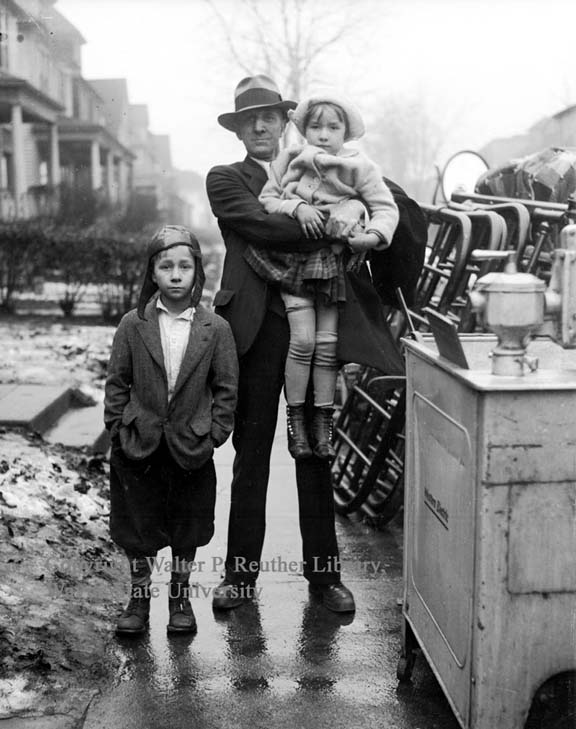 St. Pete: So the key to your whole program is to create not private profit but social profit.
St. Pete: So the key to your whole program is to create not private profit but social profit.
Khavari: Yes, and social benefit. You have to understand that our current economy is based on social cost. When you have nothing, you can’t give anything to anybody. You have to create wealth and benefits and social profit. Not like Rick Scott does. He brings in companies from Ohio, from Michigan, brings them here, to invest and create jobs, like Colt, the gun manufacturers. They might create a few jobs, but the profit all goes to their mother companies in Ohio, in Michigan, wherever. We need to keep it in Florida. When I’m governor, we’ll create demand with companies owned by Floridians. We want to keep the social profit, the social benefits in Florida. We bring gambling companies in from Malaysia, what do you think happens? They suck all the money out of us, they buy all these fancy buildings in South Beach and where do our people live? Under the bridges three miles away. Right now it’s all concentrated on transferring wealth from working people to a small group of rich people.
St. Pete: North Dakota has a state bank. State revenues are placed there to help fund their infrastructure, businesses, citizens and students. North Dakota presently has budget surpluses which help pay for its services, but its scope of operation has been seriously whittled down by hostile political forces. Here, many of us in the Green Party are excited by your most radical idea, the creation of a SuperBank to refinance home mortgages and student debt. The numbers you cite are compelling. But I do have a few questions. First, how would this bank initially be capitalized, to get it off the ground?
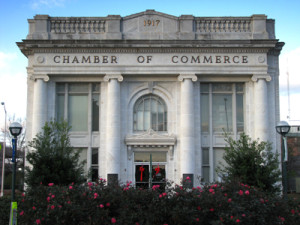 Khavari: I’m aware of the North Dakota experience. It was a step in the right direction, but what I’m proposing is more advanced than that. Florida has some $40 billion in pension funds. They are investing it in Wall Street, mostly losing it. We take that money. Then there are lands that belong to the state, buildings and stuff. But money is not the issue. The policy is the issue. With the right policies, we could do miracles. We could finance homes for first-time buyers, then charge 2% interest. Instead of paying off the banks, homeowners could be spending more on real goods. We could then announce that depositors would get 6% interest. That would attract depositors. On this schedule you would be making 14% profit, charge 2%, give 6% to the people. Let’s say you’re a bank, and I give you $100, you would be lending that out 10 times, like every bank does, even 12, 13, 14, 20 times. That $100 could be used to create $1,000 in value. More people will be depositing money because they wouldn’t be getting more than 1% or 2% depositing anywhere else. Our bank would grow. The cost would be as low as possible because you wouldn’t need branches everywhere. All you’d need would be a big, empty shopping center, with some computers and a few workers doing the job.
Khavari: I’m aware of the North Dakota experience. It was a step in the right direction, but what I’m proposing is more advanced than that. Florida has some $40 billion in pension funds. They are investing it in Wall Street, mostly losing it. We take that money. Then there are lands that belong to the state, buildings and stuff. But money is not the issue. The policy is the issue. With the right policies, we could do miracles. We could finance homes for first-time buyers, then charge 2% interest. Instead of paying off the banks, homeowners could be spending more on real goods. We could then announce that depositors would get 6% interest. That would attract depositors. On this schedule you would be making 14% profit, charge 2%, give 6% to the people. Let’s say you’re a bank, and I give you $100, you would be lending that out 10 times, like every bank does, even 12, 13, 14, 20 times. That $100 could be used to create $1,000 in value. More people will be depositing money because they wouldn’t be getting more than 1% or 2% depositing anywhere else. Our bank would grow. The cost would be as low as possible because you wouldn’t need branches everywhere. All you’d need would be a big, empty shopping center, with some computers and a few workers doing the job.
Beating the market
St. Pete: So you beat the market by selectively investing in stuff that’s productive for human services and goods, rather than investment in the stock market.
Khavari: Exactly. The stock market is just a transfer of wealth. What I’m proposing is the creation of wealth. For example, we have to understand that education is not a cost, it’s an investment. Suppose your parents send you to study and learn, to get an education, they’ve invested in you. Without that education, there’s a lot you wouldn’t be able to do. We also have to make a national investment in education. Education must be free. I got my education in Germany without having to pay a penny for it. We have to implement that here. With stupidness, we don’t get too far. If we’re smart, we can go to the next level. We can’t just beat the heads of students with huge student loans and they end up with no jobs. What do you think happens? You destroy families. If you have to pay 6% for your student loan and you can’t pay, maybe your parents pay for it. And then your parents end up in the poorhouse, they spend their few savings on their children and then they can’t make money at age 70. We have to be a little bit more humane. The more the children study, the more this should pay off in social profit.
The same for healthcare. Our current healthcare system is the worst in the world. It’s all wrong. It’s all costs. If you get sick and they do surgery, they fix it, but you don’t gain anything. Then we have preventive medicine. But that costs also. We have to go to perfected medicine, the most advanced possible. These are the issues that bother me.
St. Pete: What about reducing the social costs of energy?
 Khavari: We have to go solar, but that’s no good if we do it through a centralized system. Because we live in Florida and America, where we get earthquakes, hurricanes, tsunamis, and if we get hit by one of those, we go back to the Stone Age. Then there’s pollution. Instead of growing corn and producing ethanol, we should be growing algae, cleaning up the Everglades, and producing algae oil, to use to run our power plants. We still need power plants, because there are places like downtown Miami, and you can’t just put solar systems everywhere. It would also be unwise to do solar farms, because they take up a lot of space, because it takes 10 years to do, and if one gets hit by a hurricane, then it’s gone. And you can’t use nuclear power plants. Look at what happened in Japan. And if you do offshore drilling, and it hits an undersea gas pocket, then there’s a tsunami, well, we can’t go that route. There are all sorts of challenges, but we can do this. We can get all the energy we want for free. We can become a strong nation without being dependent on anyone. We could lead the world with this technology, but instead we use our military power to impress them.
Khavari: We have to go solar, but that’s no good if we do it through a centralized system. Because we live in Florida and America, where we get earthquakes, hurricanes, tsunamis, and if we get hit by one of those, we go back to the Stone Age. Then there’s pollution. Instead of growing corn and producing ethanol, we should be growing algae, cleaning up the Everglades, and producing algae oil, to use to run our power plants. We still need power plants, because there are places like downtown Miami, and you can’t just put solar systems everywhere. It would also be unwise to do solar farms, because they take up a lot of space, because it takes 10 years to do, and if one gets hit by a hurricane, then it’s gone. And you can’t use nuclear power plants. Look at what happened in Japan. And if you do offshore drilling, and it hits an undersea gas pocket, then there’s a tsunami, well, we can’t go that route. There are all sorts of challenges, but we can do this. We can get all the energy we want for free. We can become a strong nation without being dependent on anyone. We could lead the world with this technology, but instead we use our military power to impress them.
Beyond $15
St. Pete: You have written, “Organizing demand costs nothing, and an independent governor is in a perfect position to do it by representing the largest ‘buying club’ in the world: almost 20 million Floridians.” States that raise the minimum wage even to $10/hour have shown more growth than states that did not, which says something about organizing demand. Now some of us in the Green Party are working in the movement for the $15/hour minimum wage.
Khavari: I want to go a step beyond minimum wage. I want to give people a living wage. If you know how money is created, you know that we are already spending that money in terms of food stamps, in terms of jails, in terms of unemployment and many other social costs. Why can’t we guarantee everyone a living wage?
St. Pete: So you’re saying that $15/hour is not enough.
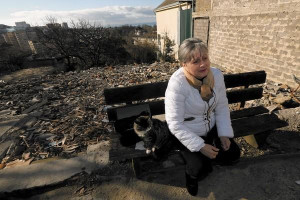 Khavari: Right. We can pay a living wage. For a family of four to have a halfway decent standard of living costs $40,000, so let’s just give it to them. Then you might say, “Why would anyone work?” Of course people would have to work. Then the benefit of Zero-Cost economy kicks in. You would be owning your house, you would be owning your boat, you would be owning your car, your energy system, all paid off and clear, then you wouldn’t even need $40,000. You only need $40,000 because you have to pay $1,000 monthly rent, pay off your car, etc. Let me give you free energy, with solar homes, we put you in that position by creating demand. You think that money must be backed by gold? Nonsense! Old thinking, conventional thinking. Money has a value if the economy is vibrant and robust. Look, Obama spent $1 trillion to allegedly create jobs. Show me one decent job he created. All deficit spending is worthless. Instead, he bailed out the banks. But suppose he had given that money to the people. Let’s say that in Dade County there are 50,000 people unemployed, homeless, give them $40,000, they would have stimulated the economy much more than he did. He could have given it to people who could have bought their first homes, he could have bailed them out, and he would have done a better job than he did bailing out the banks. That’s another reason why I’m not running as a Democrat.
Khavari: Right. We can pay a living wage. For a family of four to have a halfway decent standard of living costs $40,000, so let’s just give it to them. Then you might say, “Why would anyone work?” Of course people would have to work. Then the benefit of Zero-Cost economy kicks in. You would be owning your house, you would be owning your boat, you would be owning your car, your energy system, all paid off and clear, then you wouldn’t even need $40,000. You only need $40,000 because you have to pay $1,000 monthly rent, pay off your car, etc. Let me give you free energy, with solar homes, we put you in that position by creating demand. You think that money must be backed by gold? Nonsense! Old thinking, conventional thinking. Money has a value if the economy is vibrant and robust. Look, Obama spent $1 trillion to allegedly create jobs. Show me one decent job he created. All deficit spending is worthless. Instead, he bailed out the banks. But suppose he had given that money to the people. Let’s say that in Dade County there are 50,000 people unemployed, homeless, give them $40,000, they would have stimulated the economy much more than he did. He could have given it to people who could have bought their first homes, he could have bailed them out, and he would have done a better job than he did bailing out the banks. That’s another reason why I’m not running as a Democrat.
St. Pete: Here in St. Petersburg, some of us are also working on a ballot initiative with a group called the People’s Budget Review. The initiative would require that 3% of the city’s budget be determined by a committee of 23 representatives of community organizations, with that 3% not susceptible to amendment by the Council or veto by the mayor. Could your SuperBank work with something like that?
Khavari: Could be. I don’t know that much about this specific measure, but the SuperBank could be established in cities and counties. Depends on how you set up the system.
St. Pete: St. Petersburg would have $6 million for these projects. If these projects were self-sustaining or self-financing, then there would be no limit to what they could do.
Khavari: That’s correct. Depends on how you set up the system, to serve the people or serve the big money. To rip you off or provide you benefits. To hurt you or do something good for you. Unfortunately, our system is set up in a way that rips us off and enslaves us. That must be changed. No matter who does what, it must be set up in a way that benefits every citizen, including the rich. They’ll be making more money this way than by ripping people off. Social Cost is social cost.
St. Pete: Let me move on to some non-economic issues, which many Greens feel very strongly about. I’d like to ask where you stand on some of those.
Khavari: Go ahead.
St. Pete: A woman’s right to abortion?
Khavari: I don’t want to dictate to anybody what they should be doing on social issues. It is a matter of their husband, wife, brother, mother, sister, doctor. The governor and the government should not be deciding that.
St. Pete: Would that approach also apply to marijuana legalization?
 Khavari: I come from a herbal background. I don’t take chemical medicine unless I’m next to dying. So I think that cannabis is a way to go, and it will reduce the healthcare cost drastically. It is more effective than anything out there, regarding cancer and seizures. Having been only exposed to herbal medicine, it helps a lot. And it costs less.
Khavari: I come from a herbal background. I don’t take chemical medicine unless I’m next to dying. So I think that cannabis is a way to go, and it will reduce the healthcare cost drastically. It is more effective than anything out there, regarding cancer and seizures. Having been only exposed to herbal medicine, it helps a lot. And it costs less.
St. Pete: What about gay marriage?
Khavari: Who am I to tell anybody what they should be doing, any more than they should be telling me what I should be doing? Everyone’s freedom starts with emotional freedom. Everybody should be choosing their own partner. I don’t even want anyone telling me that I should marry this girl or that girl. I would go so far as to be the first governor to officiate at a gay marriage in Florida. You’ve heard me talking about social costs. All the social issues are social costs. You do not generate wealth, you create cost, and waste energy and time, and never resolve the problem. Since the creation of Adam and Eve, social issues have existed, and they’ll exist another million years if the planet survives that long.
St. Pete: And the death penalty?
Khavari: I’m generally against it. My father was executed by the radical Islamic regime of Ayatollah Khomeini for the crime of not renouncing his Bahá’i faith. But I do have a little reservation. I never want to sign any death penalty. But it hurts me when a little boy or a woman or a girl has been raped and then killed. I have a very tough time comprehending how to handle that. Generally I’m against it, even for murder, unless some guy says yes, I killed this guy, and I’m proud to have done it. But if we get an uneducated person suspected of murder, and he can’t defend himself, even if he’s convicted and the jury says he should be executed, I’m against it because I still have doubts. If I’m governor, I hope never to have to deal with that. I don’t want to be the guy who takes a life.
St. Pete: What about what’s happening with Israel and the Gaza Strip right now?
Khavari: It’s the same problem we are having here and everywhere. Unfortunately, there is a group of people who want to be in control, and there is no need for it. I’m not saying there aren’t radical people. There are radical people. My father was executed because he didn’t renounce his religion. But there are economic issues involved. If I were in charge of Israel, or if I were a leader of the Palestinians, I would try to resolve the problem economically. It’s water, it’s land, everything else. If there was a leadership to explain that to them, the problem could have been resolved much faster than you and I think. Then we look at the involvement of the Islamic Republic of Iran in Gaza or Lebanon. It’s the drive for control, for political power, but there’s no need for it. A person can rule the world with love, creating prosperity, rather than with knives and guns and F-14’s and F-16’s.
St. Pete: I find much of what you say to be socialistic.
Khavari: It is socialistic, to create a system that reduces social costs, not to build up social costs. As a people, we must be heading toward a leisure society. Economics should not be the determining issue anymore. You should be able to do things you really want, not just have to work for a loaf of bread and a few hamburgers. It’s a matter of setting up the system the right way. You can take chicken and cook KFC, or you can cook French cuisine. You can use bricks and wood to build palaces or lousy little homes. You can set it up to help people, or to cheat them and hurt them, or exploit them. Unfortunately, the system is exploiting them. When you exploit somebody, there is not much you can do. The people are going to collapse too. Our commercial banking system is living on fees and interest, only transferring wealth, not generating wealth. You can only do that so much, until people become less and less and less. When Rick Scott talks about all the jobs he’s created, where are those jobs? Look at all those shopping centers that are empty now. Things get worse every day. And what kinds of jobs does he create. Minimum wage jobs? How can people live on minimum wage? It’s stupid to do that. If you want to make money from some guy, you have to give them money to spend, more of it. Every penny you give somebody, it has a multiplier effect. You can create more wealth with it, assuming you want to have a lot money. Which I think is a sickness itself. It never ends.
St. Pete: You have stated, “We are not going to change the way the U.S. monetary system works any time soon.” To focus on the phrase “any time soon,” how do you see the economic system changing over the long term?
Khavari: This system is collapsing already. Unfortunately, economic collapse doesn’t happen like the Twin Towers. It doesn’t go down in 5 minutes. It happens incrementally. It’s like you take a frog and slowly boil him to soup, and he will never know that he has become soup. This is what’s happening. The private banking system should be supporting the SuperBank. Instead we will be witnessing the end of the commercial banking system. This monetary system will fall apart. The dollar is going to fall apart. It cannot survive like this. But we can change the trend. It all depends on how you set up the system. That’s why I want to run as an independent.
— submitted by Jeff Roby
07/28/14


